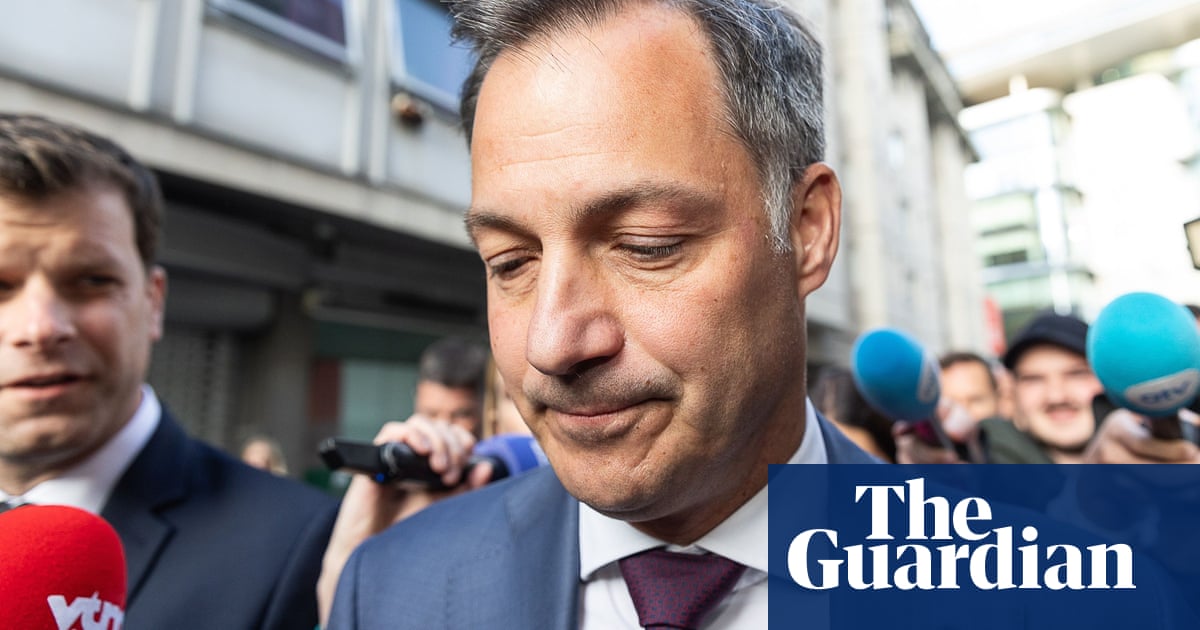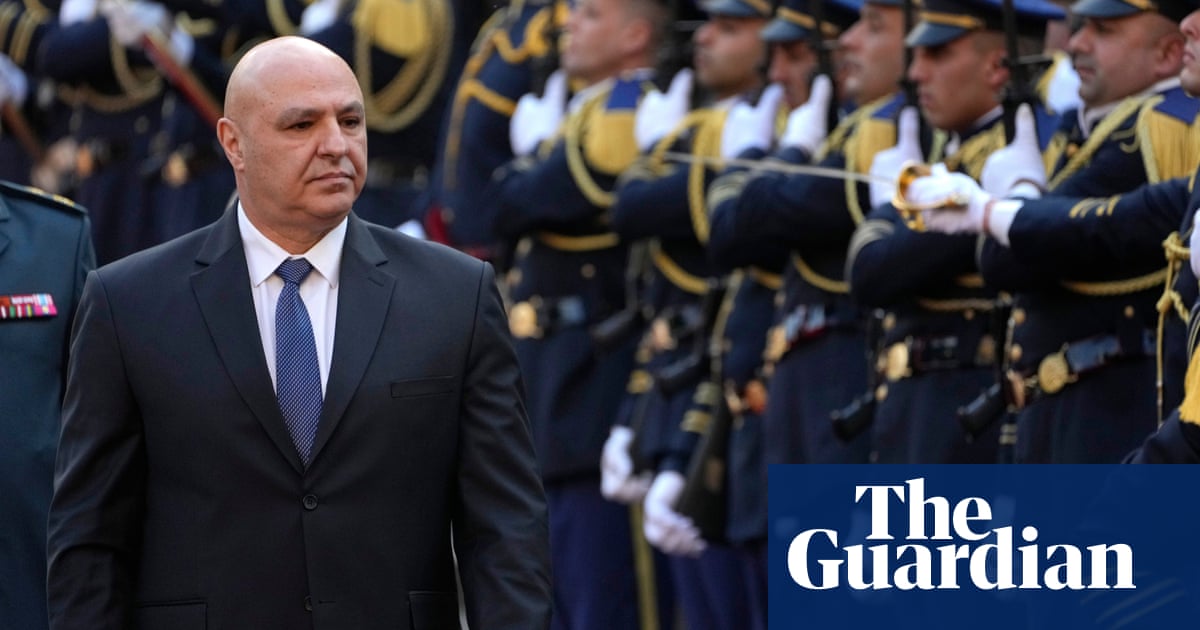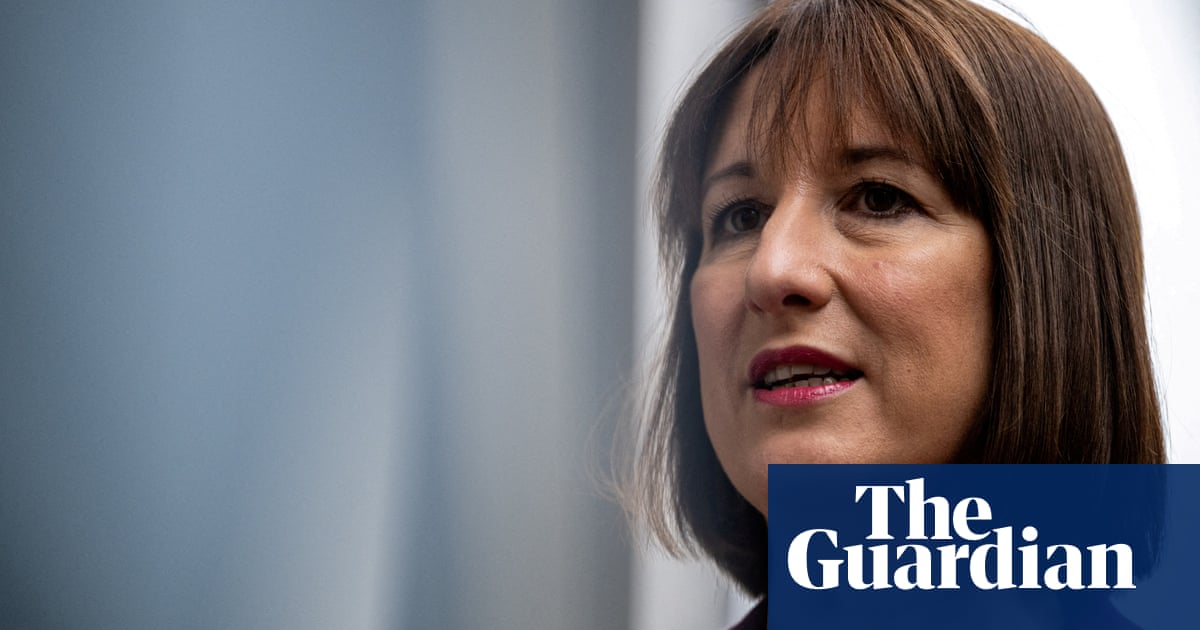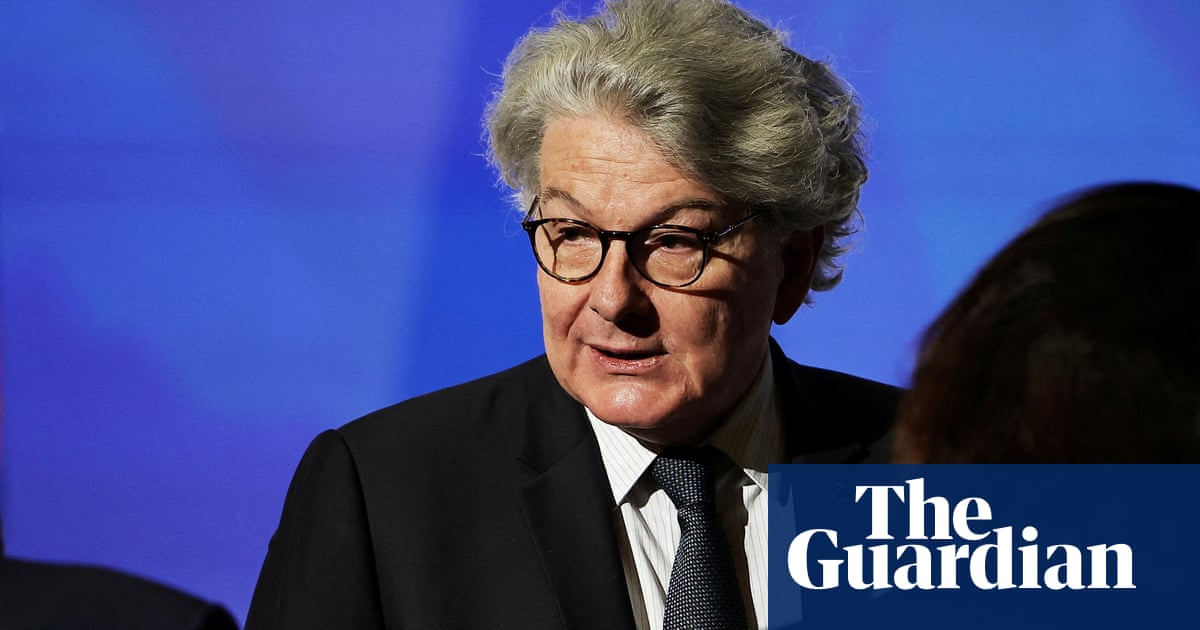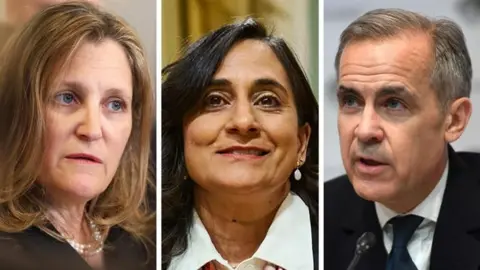 Getty Images
Getty ImagesJustin Trudeau’s nine years as Canadian prime minister is coming to an end after he announced he will step down as leader of the governing Liberal Party.
It means his party must now find a new leader to compete in a general election in which polls suggest they are heading to defeat.
Here are some of the people expected to enter the Liberal leadership race.
Former Deputy PM Chrystia Freeland
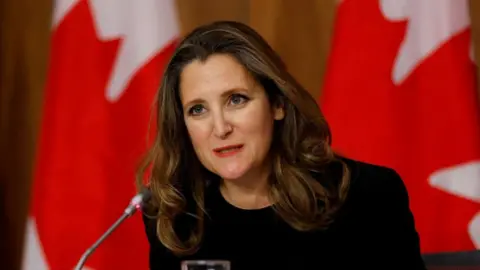 Reuters
ReutersThe Toronto member of parliament is seen as one of the top contenders to replace the outgoing leader and became one of the most well-known members of Trudeau’s team.
While she had long been seen as a trusted senior official in his inner circle, a rift with the prime minister’s office led to her recent abrupt resignation in December.
Her criticism of Trudeau in her public resignation letter piled the pressure on him and made his departure seem inevitable.
Born to a Ukrainian mother in the western province of Alberta, the 56-year-old was a journalist before entering politics.
She entered the House of Commons in 2013 and two years later joined Trudeau’s cabinet with a trade brief after he swept the party to power.
As Minister of Foreign Affairs she helped Canada renegotiate a free trade deal with the US and Mexico.
She was later named deputy prime minister and minister of finance – the first woman to hold the job – and oversaw Canada’s financial response to the Covid pandemic.
Quitting last month, she criticised Trudeau as insufficiently strong in his handling of Donald Trump’s threat to levy US tariffs on Canadian goods.
A 2019 Globe and Mail profile said depending who you asked, Freeland is either a last, best hope for the liberal world order or an out-of-touch idealist.
Her steadfast support of Ukraine earned praise in some quarters but the Harvard-educated MP has had her share of critics, including Trump who recently called her “toxic”.
Former central banker Mark Carney
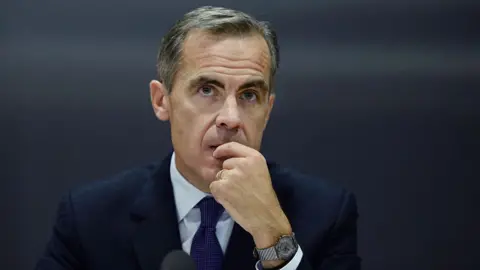 Getty Images
Getty ImagesTrudeau himself admitted that he had long been trying to recruit Mark Carney to his team, most recently as finance minister.
“He would be an outstanding addition at a time when Canadians need good people to step up in politics,” he told reporters on the sidelines of a Nato conference in July 2024.
Carney, 59, who has been serving in recent months as a special adviser to Trudeau, has long been considered a contender for the top job.
The Harvard graduate has never held public office but has a strong economic background, serving at the top of both the Bank of Canada and the Bank of England.
He also brings with him expertise on environmental matters through his role as the United Nations special envoy on climate action, recently calling the goal of net zero “the greatest commercial opportunity of our time”.
Carney is a champion of some Liberal policies that have been unpopular within the country’s conservative circles like the federal carbon tax policy, the party’s signature climate policy that critics argue is a financial burden for Canadians.
He has also already criticised Pierre Poilievre, the leader of the Conservative Party of Canada, saying his vision for the future of the country is “without a plan” and “just slogans”.
“I’m the one in the conversation who’s actually been in business, who actually is in business, and makes decisions,” he said.
Anita Anand, transport minister
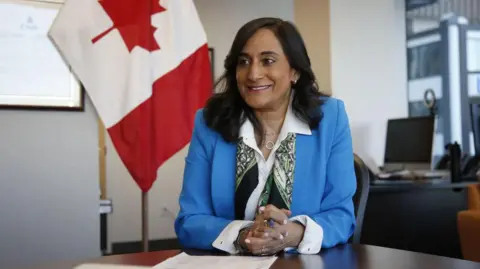 Bloomberg via Getty Images
Bloomberg via Getty ImagesAnand is often touted as one of the more ambitious members of the Liberal caucus.
The 57-year-old lawyer entered the political scene in 2019 when she was elected to represent the riding of Oakville, just outside of Toronto.
An Oxford-educated academic, she has a background in financial market regulation and corporate governance.
She was immediately awarded the ministerial brief of public services and procurement, putting her at the helm of a mission to secure vaccines and personal protective equipment during the Covid pandemic.
Anand was then appointed minister of defence in 2021, leading Canada’s efforts to provide aid for Ukraine in its war against Russia and overseeing a personnel crisis at the Canadian Armed Forces mired by sexual misconduct scandals.
When Anand was shuffled out of that department to oversee the Treasury Board, many saw it as a demotion and critics of Trudeau went as far as to speculate that it was punishment for her ambitions to one day lead the party.
In December, she was moved again during a cabinet shuffle, into the role of transport minister and minister of internal trade.
François-Philippe Champagne, minister of innovation, science and industry
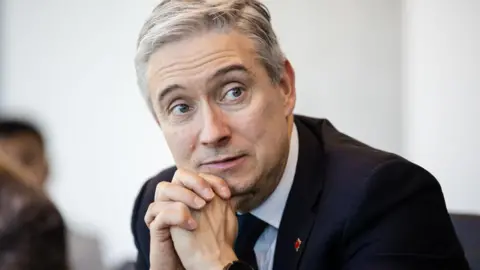 Toronto Star via Getty Images
Toronto Star via Getty ImagesThe former businessman and international trade specialist is another Liberal minister said to be eyeing the party’s top job.
But his journey through the ranks to a major portfolio was slower than Anand’s.
Champagne, 54, entered the Commons in 2015 but since then has gone through international trade, foreign affairs and most recently the department of innovation, science and industry.
But there are several things that work in his favour. Champagne is from Quebec, a province whose voice has often been consequential in federal Canadian elections.
He has also been dubbed “Canada’s Energizer Bunny” by some pundits, who have watched his enthusiasm as he travelled around the world under his innovation portfolio with a mission to sell all that is Canada-made.
And because of his business acumen, political watchers see him as a viable option for luring centrist Liberals back into the fold.
Mélanie Joly, minister of foreign affairs
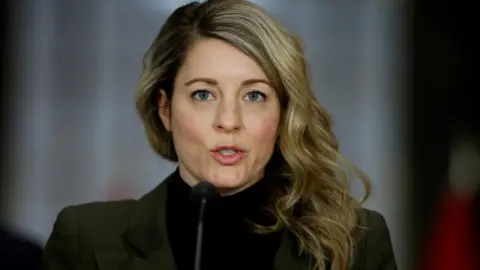 Reuters
ReutersLike Trudeau, Joly represents a Montreal-area riding.
To foreign leaders, the 45-year-old is a familiar face, having represented Canada on the world stage since 2021.
As the current foreign minister, she has taken several trips to Ukraine in a show of Canada’s support. She travelled to Jordan to aid in the evacuation of Canadian citizens in the region when the Israel-Hamas war erupted.
Joly has also been at the heart of some of the government’s greatest foreign policy challenges, including the diplomatic crisis sparked by the alleged assassination of a Sikh separatist leader on Canadian soil by Indian agents.
The Oxford-educated lawyer is a well-connected francophone politician who previously ran for mayor of Montreal.
She was tapped by Trudeau personally to run for a federal job in politics.
“He would periodically call me to say, ‘Mélanie you need to run, we want you to run,'” Joly has said.
Senior advisers have hailed her ability to work a room of either seven or 700, and she has long held ambitions to run for Liberal party leader, close friends told Canadian magazine Macleans.
Dominic LeBlanc, minister of finance and intergovernmental affairs
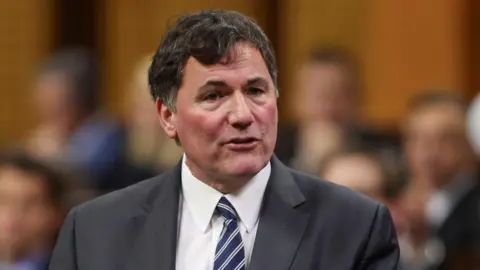 Reuters
ReutersLeBlanc, 57, is one of Trudeau’s closest and most trusted allies.
Their friendship runs deep, with LeBlanc even babysitting Trudeau and his siblings when they were young.
He has a record of stepping into portfolios at difficult moments, including becoming finance minister within hours of Freeland’s bombshell resignation.
LeBlanc also took on the tricky assignment of accompanying Trudeau to Mar-a-Lago in November to meet Trump.
The former lawyer has been a parliamentarian for more than two decades, having been first elected in 2000 to represent a riding in the Atlantic province of New Brunswick.
Like Trudeau, LeBlanc was born into a political family. His father served as a minister in the cabinet of Trudeau’s fabled father, Prime Minister Pierre Trudeau, and later as Canada’s governor-general.
LeBlanc has shown previous ambitions to lead the party, running in 2008 but losing to Michael Ignatieff. He did not run again in the next leadership race, which was won by Trudeau.
He is in remission after cancer treatment and is known to be an affable and a strong political communicator.
Christy Clark, a former provincial premier
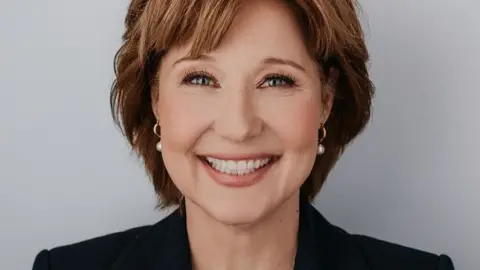 Christy Clark
Christy ClarkThe former premier of British Columbia has expressed an interest in throwing her hat into the Liberal leadership ring.
In a statement in October, she said she was “would want to be part of the conversation on the future direction of the Liberal Party and of the country” if Trudeau stepped down.
Clark, 59, served as the leader of Canada’s western-most province from 2011 to 2017, where she built a reputation of being able to balance environmental priorities while developing BC’s energy industry.
She has repeatedly said in interviews in the past couple of years that Trudeau had become a drag on the federal Liberals.
She has also reportedly been taking French lessons, according to broadcaster Radio-Canada. A fluency in French is considered a prerequisite for federal politicians in Canada.
Article by:Source






